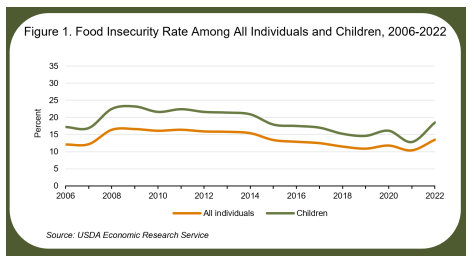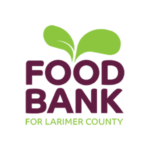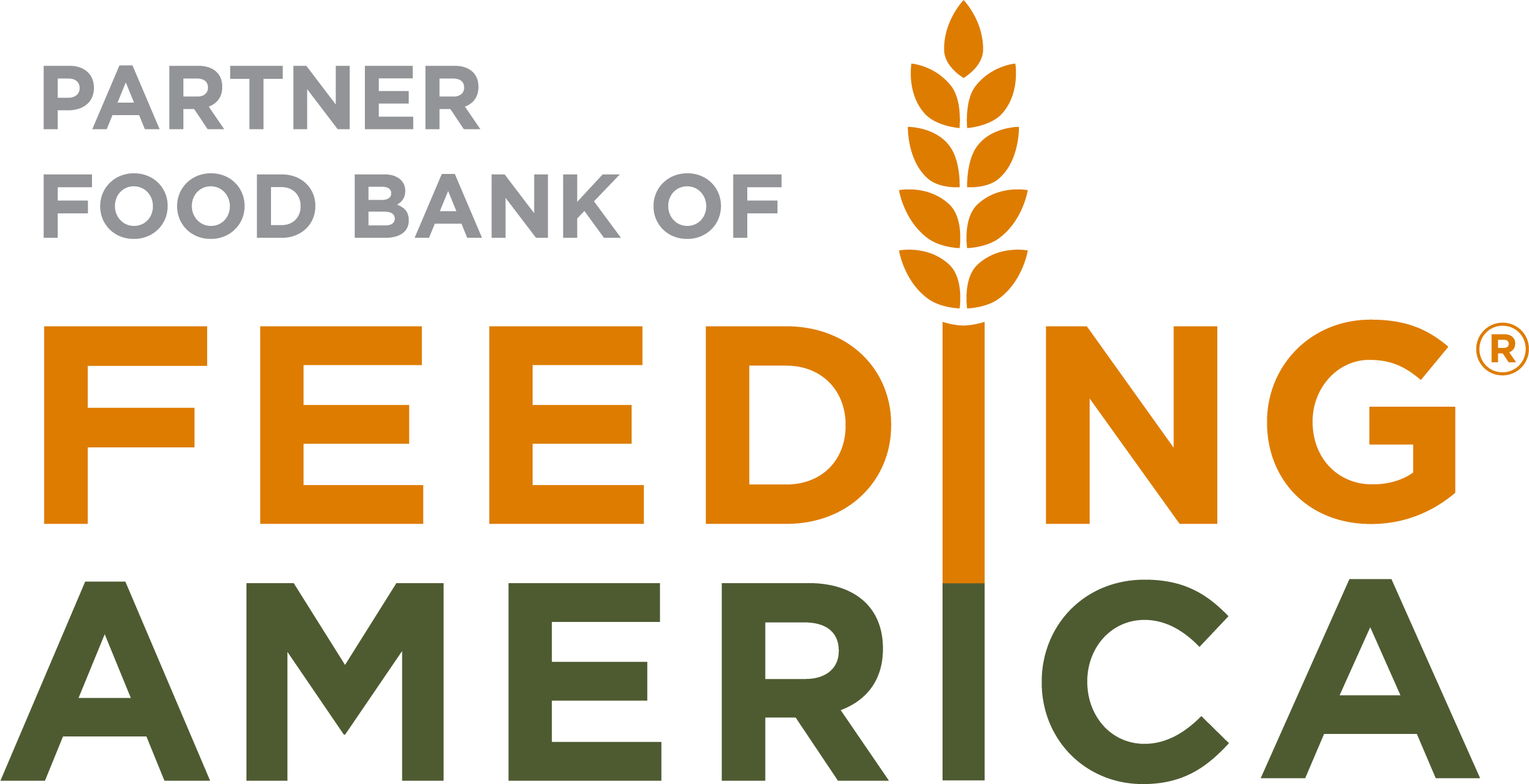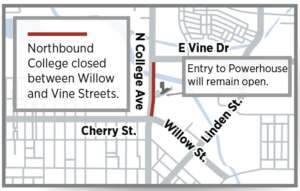Not having enough healthy food can have serious implications for a child’s physical and mental health, academic achievement, and future economic prosperity. Research shows an association between food insecurity and delayed development in young children; risk of chronic illnesses like asthma and anemia; and behavioral problems.
Food insecurity is a symptom of historical and structural oppression, not individual weakness. It does not exist in a vacuum: people who face challenges accessing enough food also face challenges affording adequate housing, healthcare, transportation, and other basic needs. Food insecurity is a complex issue that will not be solved with a one-size-fits-all solution. Rather, effective solutions to food insecurity should be informed by a deep understanding of individuals and families experiencing food insecurity and where they live.
Effects and Impacts of Childhood Hunger
Household food insecurity impedes children from reaching their full physical, cognitive, and psychosocial potential. Some common effects include:
- Poor academic performance: Children who experience food insecurity are more likely to have trouble focusing and learning in school. Longitudinal data suggest children’s learning outcomes suffer when they regularly experience hunger and that nearly every aspect of physical and mental function is hurt as well. Food insecurity affects concentration, memory, mood, and motor skills, all of which a child needs to be able to be successful in school.
Research also revealed the negative impacts of hunger on children’s social-emotional skills and approach to learning. In many cases, a child who enters kindergarten developmentally behind their peers will struggle to catch up, which affects their academic performance for years to come.
- Increased health problems: Kids who don’t get enough food to eat face higher risks of health conditions like anemia and asthma.
Compared to rates had they not been food insecure, children in a food-insecure household had rates of lifetime asthma diagnosis and depressive symptoms that were 19.1% and 27.9% higher, rates of foregone medical care that were 179.8% higher, and rates of emergency department use that were 25.9% higher.
- Developmental differences: Chronic hunger negatively impacts children’s development both physically and cognitively. Hunger can change how a child’s brain and body grow and affect their thinking, learning, and behavior. Children experiencing hunger at home had lower scores in vocabulary and word recognition.
Chronically hungry kids are more likely to present with hyperactivity, anxiety, and aggression than their peers are.
Current Trends
The United States’ response to the economic downturn that began at the outset of the COVID-19 pandemic was to expand federal and local support programs, and for a period of two years (2020-2022) food insecurity levels were stable or declined. As pandemic programs ended and prices for household expenses (including food) rose, food insecurity levels have also risen.
The USDA reports that 18.5% (1 in 5) of children in the U.S. may experience food insecurity. Sadly, additional research links food insecurity and poor child health and behavioral outcomes at every age. The graph below shows the trends in food insecurity levels among all individuals and children from 2006 through 2022. Child food insecurity also exists in every community, and rates reach nearly 50% in some counties.

Stigmas Children Face When they Experience Food Insecurity
We know that school-based nutrition options, including the option to eat breakfast at school, translate into better academic achievement for students. Unfortunately, some children might feel social pressure from their peers that prevents them from taking advantage of the free or reduced-price meals available at school. For many children and teens, it can feel embarrassing to receive free or discounted meals; it can also be difficult not to be able to pay lunch fees or purchase “extras” that their friends enjoy. This issue can prevent solutions from being as effective as possible – but luckily, efforts are being made to change this.
Colorado’s ‘Healthy Meals for All’ Bill
Passed in the 2022 Regular Session in Colorado Legislature, the Healthy Meals For All Public School Students (HMFA; SB22-087), created the healthy school meals for all program in the Colorado department of education to reimburse school food authorities for free meals provided to students who are not eligible for free or reduced-price meals under the federal school meals programs. Under the bill, a participating school food authority that creates a parent and student committee to advise on food purchasing (advisory committee) is eligible to receive a local food purchasing grant (grant) to purchase Colorado grown, raised, or processed products for school meals. Most of Colorado’s 178 school districts participate.
FBLC’s ‘Lunch Lab’
HMFA only supports kids when school is in session; what about every other day? The Food Bank for Larimer County helps relieve the fear of going hungry by rolling out The Lunch Lab. Over the summer (and school-out days throughout the year) we have food trucks covering different daily sites providing hot meals for kids’ lunches. We partner with fun community organizations to provide activities to keep your kids well-fed and engaged.
If you or your family need healthy, made from scratch meals for children aged 18 and under at multiple sites throughout Larimer County. All are welcome; no ID or registration is required to be served a hot, healthy lunch.
Learn more about the Lunch Lab here.








